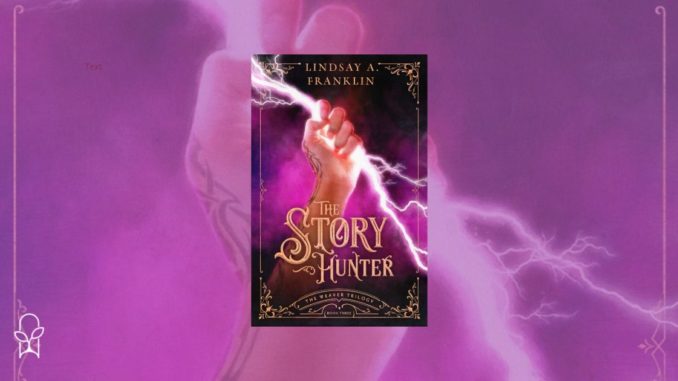
Series: The Weaver Trilogy #3
Published by Enclave Publishing on May 19, 2020
Genres: Fiction, Christian, Fantasy
Buy on Amazon
Goodreads

Redeeming the past is a fatal quest.
In the wake of a deadly coup, the capital city of Urian has descended into chaos. Heartbreak and bloodshed await Tanwen and her friends as they discover the unlikeliest leader now rules Tir.
If they want to save the realm, Tannie and the Corsyth weavers must rescue Queen Braith and unmask the Master, ending the strife once and for all. But the success of their hunt depends upon an ally no one trusts.
The Master has a new target in sight: fragile, trauma-scarred Digwyn, whose unique weaving ability could turn the tide of any war. When the desire for vengeance proves too powerful for Digwyn to resist, Tanwen must face a terrifying truth: the fate of Tir rests in the hands of a volatile, shattered girl.
Lindsay Franklin’s The Weaver Trilogy began with Tanwen weaving stories into crystalline figures, hoping to become Royal Storyteller for the King. By the trilogy’s end in The Story Hunter, she must rescue the Queen, unmask the Master behind the usurper, and end the battle for the throne of Tir. So, as you can see, a lot has happened. I enjoyed The Story Peddler and found the imagery of story weaving being a tangible magic a metaphor that Franklin used quite adeptly. But the series had been a saga of decreasing returns. By The Story Hunter, the series has moved into a fairly stock fantasy trope of a Chosen One overcoming the Usurper who is but a puppet for the Shadowy Figure behind it all.
The story begins to feel cluttered as it expands, covering four different points of view: Tanwen, Digwyn, Braith, and Brac. While the majority of the time is given to Tanwen’s POV, it never really feels like her story. This is unfortunate, because moving the protagonist to a secondary position is a difficult endeavor and not one that Franklin manages entirely. Franklin’s writing is good. The pacing flows well within a point of view, but feels choppy when transitioning. The constant need to reset one’s mental picture is something I found a bit distracting.
This is a difficult story to critique because it’s not bad, but it doesn’t stand out either. Franklin hits all the necessary points for a solid Christian fantasy book one-by-one, not skipping a bit. And that just makes the book seem too formulaic. The wonder and novelty of Tanwen’s story weaving is now lost amid a bigger and larger story that overshadows that and, frankly, isn’t as interesting.
Overall, The Story Hunter is serviceable but I don’t know that it lives up to the premise as set out by the truly great first book. The storyline seems scattered, I wasn’t as invested in the characters or their outcomes, the plot twists seemed telegraphed and weren’t surprising. This is a problem that many fantasy series seem to have. I can’t speak to Franklin’s writing process, but typically you’ll see an author work on the first book, or maybe the first two books, to get it sold. That initial content is polished over and over again. But once the series is sold, the rush to complete the series affects the quality. It’s not that the author then cares less about quality, but that the time constraint doesn’t allow for the widening of the world.
Or, perhaps, it’s just simply that a world works when it’s small and self-contained but as the story gets bigger and more expansive, the more difficult it is to write. I felt this with Hunger Games. I felt this with Divergent. It’s hard to manage the expansion of the world in a way that does justice to the initial storyline. Because Franklin resorts to a stock fantasy story, it’s a perfectly fine novel, but neither does it stand out to its full potential.
